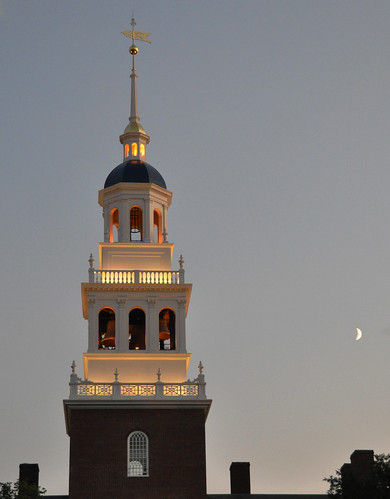Faculty and Grad Research: Dr. Janet Davis and Jeannette Vaught in American Quarterly
 Those subscribing to American Quarterly will notice that two members of our community, Dr. Janet Davis and Jeannette Vaught, have both published articles in the September 2013 issue. The special issue, Species/Race/Sex, considers the "interdisciplinary and political challenges to thinking intersectionally about species, race, and sex."A quick abstract of Janet's piece, entitled "Cockfight Nationalism: Blood Sport and the Moral Politics of American Empire and Nation Building":
Those subscribing to American Quarterly will notice that two members of our community, Dr. Janet Davis and Jeannette Vaught, have both published articles in the September 2013 issue. The special issue, Species/Race/Sex, considers the "interdisciplinary and political challenges to thinking intersectionally about species, race, and sex."A quick abstract of Janet's piece, entitled "Cockfight Nationalism: Blood Sport and the Moral Politics of American Empire and Nation Building":
This essay explores the symbiotic relationship between animal welfare and ideologies of nation building and exceptionalism during a series of struggles over cockfighting in the new US Empire in the early twentieth century. Born out of the shared experience of American overseas expansionism, these clashes erupted in the American Occupied Philippines, Cuba, and Puerto Rico, where the battle lines pitting American-sponsored animal protectionists against indigenous cockfight enthusiasts were drawn along competing charges of cruelty and claims of self-determination. I argue that battles over the cockfight were a form of animal nationalism—that is to say, cockfight nationalism. Cockfight enthusiasts and opponents alike mapped gendered, raced, and classed ideologies of nation and sovereignty onto the bodies of fighting cocks to stake their divergent political and cultural claims regarding the rights and responsibilities of citizenship, moral uplift, benevolence, and national belonging.
And a quick abstract of Jeannette's, entitled "Materia Medica: Technology, Vaccination, and Antivivisection in Jazz Age Philadelphia":
During the 1920s, the Philadelphia-based American Antivivisection Society turned to racialized metaphors in its circulating periodical, the Starry Cross, to excoriate the expanding practice of vaccination. Since vaccines were then made from animal-derived serums, the involvement of antivivisectionists in antivaccine arguments is not surprising. However, the Philadelphia society’s strange combination of vaccination, jazz, and vivisection reveals that its motivations to protect animals were deeply bound to broader cultural anxieties about the threat to purity posed by science, race, and sex, and that the stakes of succumbing to vaccination amounted to no less than medical miscegenation. By turning to racialized, speciesist arguments in asking for mercy toward animals against scientifically minded torture, the antivivisectionists’ use of the sound and image of the tortured animal was meant more to protect the human body and keep it white.
Enormous congratulations to both of them! We've linked to their pieces above; go forth and take a look.
Announcement: Thomas Frank's Take on Higher Education in The Baffler
 We recently announced the exciting news that Thomas Frank and John Summers, editors of The Baffler, will be joining the Department of American Studies for a spirited conversation on the future of higher education on October 30. Today, we offer an excerpt of a piece called "Academy Fight Song" that Frank published about the topic for their most recent issue. Expect the event to address and spring off of the arguments that Frank makes here.
We recently announced the exciting news that Thomas Frank and John Summers, editors of The Baffler, will be joining the Department of American Studies for a spirited conversation on the future of higher education on October 30. Today, we offer an excerpt of a piece called "Academy Fight Song" that Frank published about the topic for their most recent issue. Expect the event to address and spring off of the arguments that Frank makes here.
The university deals in dreams. Like other utopias—like Walt Disney World, like the ambrosial lands shown in perfume advertisements, like the competitive Valhalla of the Olympics—the university is a place of wish fulfillment and infinite possibility. It is the four-year luxury cruise that will transport us gently across the gulf of class. It is the wrought-iron gateway to the land of lifelong affluence.It is not the university itself that tells us these things; everyone does. It is the president of the United States. It is our most respected political commentators and economists. It is our business heroes and our sports heroes. It is our favorite teacher and our guidance counselor and maybe even our own Tiger Mom. They’ve been to the university, after all. They know.[...]Another fact: This same industry, despite its legal status as a public charity, is today driven by motives indistinguishable from the profit-maximizing entities traded on the New York Stock Exchange.The coming of “academic capitalism” has been anticipated and praised for years; today it is here. Colleges and universities clamor greedily these days for pharmaceutical patents and ownership chunks of high-tech startups; they boast of being “entrepreneurial”; they have rationalized and outsourced countless aspects of their operations in the search for cash; they fight their workers nearly as ferociously as a nineteenth-century railroad baron; and the richest among them have turned their endowments into in-house hedge funds.[...]Grant to an industry control over access to the good things in life; insist that it transform itself into a throat-cutting, market-minded mercenary; get thought leaders to declare it to be the answer to every problem; mute any reservations the nation might have about it—and, lastly, send it your unsuspecting kids, armed with a blank check drawn on their own futures.Was it not inevitable? Put these four pieces together, and of course attendance costs will ascend at a head-swimming clip, reaching $60,000 a year now at some private schools. Of course young people will be saddled with life-crushing amounts of debt; of course the university will use its knowledge of them—their list of college choices, their campus visits, their hopes for the future—to extract every last possible dollar from the teenage mark and her family. It is lambs trotting blithely to the slaughter. It is the utterly predictable fruits of our simultaneous love affairs with College and the Market. It is the same lesson taught us by so many other disastrous privatizations: in our passion for entrepreneurship and meritocracy, we forgot that maybe the market wasn’t the solution to all things.
The full article is available here.For more about American Studies at UT, subscribe to our newsletter here.
Alumni Voices: Allison Wright, Editorial Staff for Virginia Quarterly Review
 Today, we'd like to share with you an interview with one of our recent Ph.D. graduates, Allison Wright. Allison is a member of the editorial staff for the Virginia Quarterly Review and also teaches in the Media Studies department at the University of Virginia.
Today, we'd like to share with you an interview with one of our recent Ph.D. graduates, Allison Wright. Allison is a member of the editorial staff for the Virginia Quarterly Review and also teaches in the Media Studies department at the University of Virginia.
How is the work that you’re doing right now informed by the work that you did as a student in American Studies at UT?
I am on the editorial staff of the nation’s leading literary journal. VQR has published the greatest novelists, poets, critics, and social scientists in America over its ninety-year history, and has received more National Magazine Awards than any other literary quarterly in the nation and more nominations than some well-known magazines (such as Rolling Stone and Esquire). Because of that, our standards are high and the level of expectation we place on ourselves requires a dedication that reminds me very much of graduate school.
On its face, much of what I did as a student in American Studies at UT may not translate to what I do on a daily basis--the work of editing and publishing a magazine. But the focused, intellectual work of graduate school prepared me for this job in a very real way. The nuts and bolts of putting together a magazine--writing, editing, copy editing, fact-checking, image selection--all draw on skills I honed in the American Studies program.
And of course teaching in the media studies department at the University of Virginia, where VQR is located, is a direct result of my time at Texas.
Do you have any words of wisdom or advice for students in our department about how to get the most out of their time here?
Look for opportunities outside of the department, and say yes as often as possible. In my last year at Texas, I taught writing for the College of Pharmacy and I was a lead teaching assistant for “Classics of World Poetry” and “The American Experience as told through Autobiography,” both of which were offered through the university’s School of Undergraduate Studies. I also served as a rater for the university’s accreditation effort, visiting a wide variety of classes and scoring student presentations. These brought diversity to my CV, and they helped me discern a career path.
Finally, something Steve Hoelscher, who was graduate advisor at the time, said to me during our first meeting back in 2003 bears repeating: Have a life. Meet people who aren’t in graduate school; spend time with them. Volunteer. Find a way to feel like you are making a contribution, however small. The results of those efforts will be transportable once you take your leave.
For more about American Studies at UT, subscribe to our newsletter here.
Grad Research: Julie Kantor's Poetry Featured in Boston Review
 Exciting news from our graduate community: Julie Kantor has just published a series of poems in the latest issue of The Boston Review. We asked Julie about her work; here's what she had to say:
Exciting news from our graduate community: Julie Kantor has just published a series of poems in the latest issue of The Boston Review. We asked Julie about her work; here's what she had to say:
The sampler of poems appearing in the current issue of The Boston Review is a selection from my first collection of poems, The Beautiful West. The voice of these poems is searching for a way to speak to the marks left on the self by the self and others without resorting to the silence, or madness, so often a result of loss. Without even realizing, I reached back into Ancient Egyptian culture--their contributions to quotidian life in conjunction with the ornate rituals and traditions related to death--to intertwine it with modern life, the separation between blurred into one long existence; the way we allow ourselves to be tortured for love, to accept another's pain as our own, to hurt those we love to remain unchanged in the righteousness of our wronging is nothing new.While I keep my art, and my process to myself--separate and safe from influence--my commitment to invention through connection in my writing is what lead me to American Studies. Though I don't often let the two sides run on the same reel, they are concurrent; a mind can be ignored, but not gotten away from.
You can read the full collection here.For more about American Studies at UT, subscribe to our newsletter here.